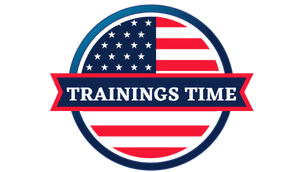Description
RECORDED TRAINING COURSE
The EEOC has announced that the long-delayed 2023 EEO-1 reporting period will finally open on April 30, 2024.
The EEOC provided important details concerning support for these filings, stating that the EEO-1 online Filer Support Message Center, the new title for the filer help desk, would also open on April 30, 2024. The EEOC will post updated information concerning the 2023 EEO-1 data collection on the agency’s website as it becomes available. Specifically, the EEOC plans to post an updated 2023 EEO-1 Component 1 Instruction Booklet for filers and the updated 2023 EEO-1 Component 1 Data File Upload Specifications for filers by March 19, 2024. It is anticipated that the EEOC will release a new set of guidance in the form of answers to frequently asked questions (FAQs) for this year’s filings prior to the opening of the filing platform.
One very significant omission from this announcement was the lack of any discussion of adding pay data collection to the 2023 EEO-1 filings. While there had been much speculation that the EEOC would begin EEO-1 Component 2 pay data collection as part of the 2023 filings, there was no mention of this in the announcement, strongly suggesting that there will be no pay data collection for 2023 or 2024.
The EEOC’s announcement follows closely on the heels of the completion of the 2022 EEO-1 filing cycle, which ended on January 9, 2024, when the filing platform was closed.
All employers with 100 or more U.S. employees and federal contractors with at least 50 U.S. employees are required to submit an EEO-1 report to the Equal Employment Opportunity Commission (EEOC) each year. The EEO-1 report provides the EEOC with data about the size, location, race or ethnicity, and gender demographics of an employer’s workforce. The 2023 report will have to be based on a workforce payroll snapshot taken between October 1 and December 31, 2023.
The EEOC has stated that all updates about the 2023 EEO-1 data collection, including an updated Instruction Booklet and Data File Upload Specifications, will be posted to www.eeocdata.org/eeo1 on March 19, 2024.
The EEO-1 reporting deadline has become a moving target, so covered employers need to sharpen their data collection and be ready to upload.
The EEOC and the U.S. Department of Labor Office of Federal Contract Compliance Programs (OFCCP) regulations require eligible employers to file Standard Form 100 (EEO-1 reports) annually through the EEOC’s dedicated website for EEO-1 Component 1 data collection.
The purpose of collecting the data is to support enforcement actions, facilitate research on employment patterns, and encourage self-assessment by employers, according to the EEOC. Some companies voluntarily go a step further and publicly release their demographic information to support their diversity efforts or improve accountability.
Session Highlights:
- Learn what the EEO-1 Reporting Instructions have changed, and which have stayed the same.
- Learn what changes will be established for the 2023 reporting period.
- Learn if there will be any surprises for the 2023 reporting period.
- Learn who is required to complete the EEO-1 Report
- Learn how to use the proper categories to complete requirements.
- Learn the best practices when getting employees to complete the voluntary identification.
- Learn what the changes are to complete the requirements of the EEO-1 reporting.
- Learn what the categories are for completing the EEO-1 form within compliance.
- Learn how the EEOC will manage transgender and binary recording.
- Learn how you should handle transgender reporting.
- Learn how to use the EEOC’s EEO-1 Online Filing System (OFS).
- Learn how Federal Contractors need to complete the requirements of risk penalties.
- Learn how the pay data reporting is still looming for the EEOC
- Learn what companies have been selected to have their reports reviewed
Why You Should Attend:
File by June 4, 2024 – or earlier! In the past, the EEO-1 reporting system has slowed down significantly as the deadline approached, which makes filing more challenging. You might want to allow yourself sufficient time before the deadline so you aren’t scrambling at the last minute with technical challenges. Typically, the EEOC does not provide for extensions.
Who Should Attend:
- OFCCP federal contractors with 50 or more employees
- Company Leadership
- Compliance professionals
- HR Professionals
- Managers/Supervisors
Note: You will get access to the Recording link and E-Transcript; in your account and at your registered email address.





